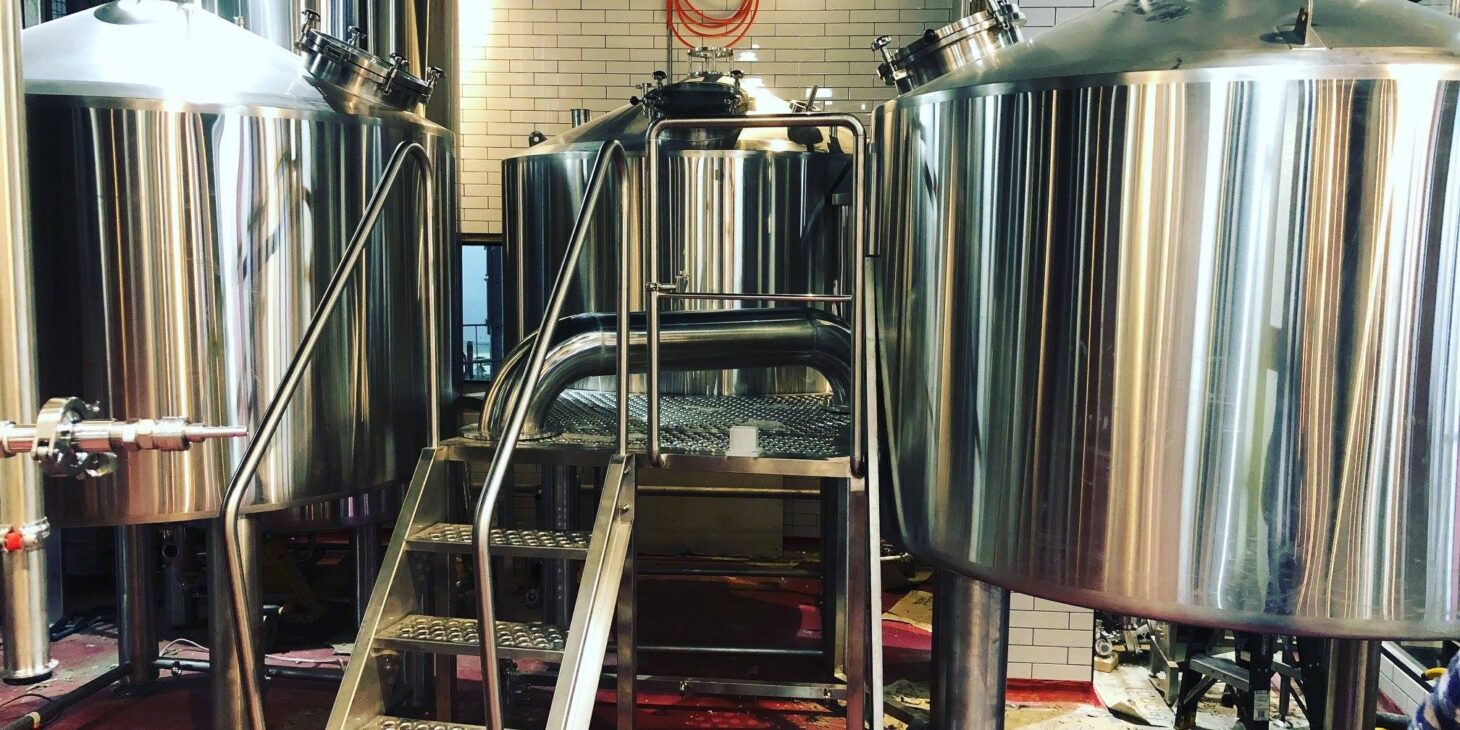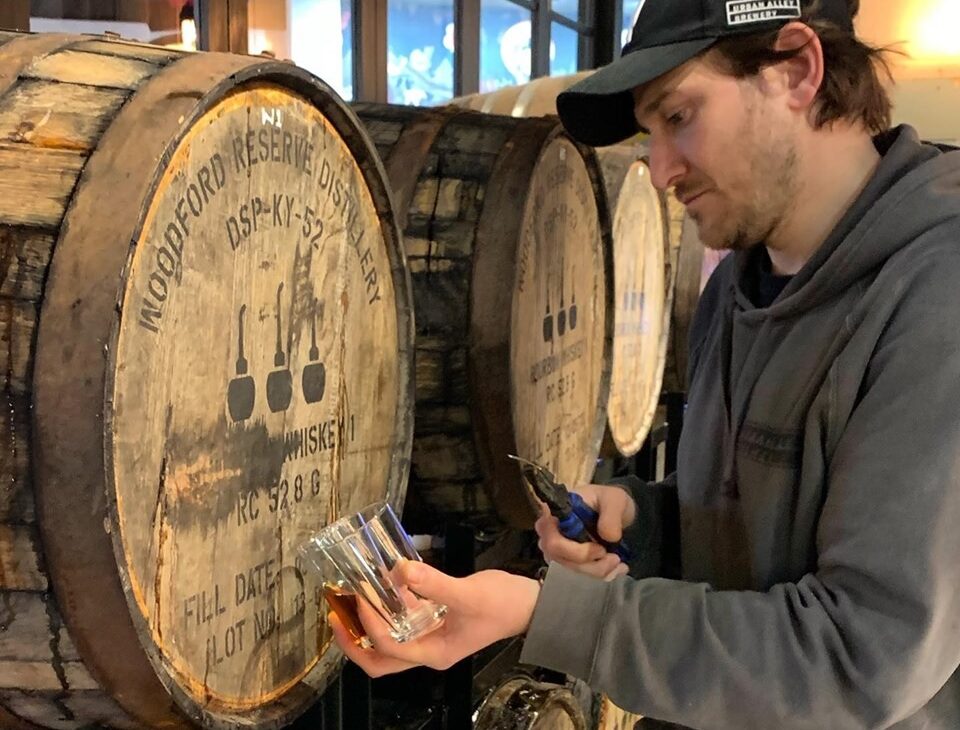
One year on...Urban Alley Brewery
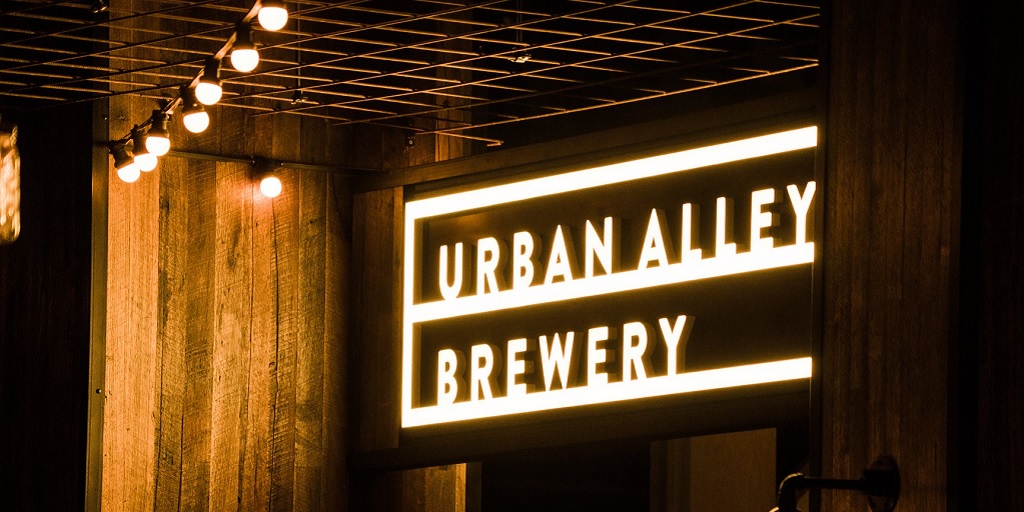
It’s been a rollercoaster of a year for Urban Alley Brewery, which launched to the public last September with the opening of its production brewery and bar in the Docklands area of Melbourne.
From a gypsy brewing operation with a series of names (registered as Laneway and trading as Collins Street Brewing) to a 550-capacity brewpub flying the Urban Alley flag, the team have seen changes in management, in their approach to selling beer and in evolving their sustainability goals.
Urban Alley’s head brewer Shaya Rubinstein and chief operations officer Rob Stevenson said that the focus throughout the year had been on growing the quality of the beer.
“We focused a hell of a lot on consistency and quality but it hasn’t all been easy. We have grown pretty quickly and with that comes challenges,” explained Stevenson.
The focus on quality saw Urban Alley win six bronze medals at the IBA’s Indies this year, but this commitment is ongoing, they said.
“A lot of breweries will focus on limited releases. We started out slow with our Alley Series, releasing one of those every couple of months.
“Now we’ve started to brew one every month, but it’s still only a limited volume to keep the focus on our core range.”
Retail versus On-premise
Stevenson explained that while this time last year Urban Alley was celebrating a major win in being listed in Liquorland Victoria stores, there have since been some changes in their sales focus.
They realised that quantity might not beat quality when it came to being stocked in bottle shops, and rolled back their presence in Liquorland stores, from an initial 170 to 70 stores – still a considerable amount for a relatively young brewery.
“We held back on off-premise strategy, which we kicked off in April, but even so we’re now in Dan Murphy’s and 150 independent bottle shops already, from only a handful this time last year,” Stevenson said.
“Having Liquorland come on early really helped, we could direct people to buy our beer at their local store if they were happy with it on premise.
“If you go for wholesale, it’s a quick win, you get a product on-shelf. But if customers are not familiar with your brand you can get lost – there’s a lot of craft beer out there.”
But they figured out the advantages and disadvantages of wholesale and retail sales early on.
“We know fresh is best, and the focus is on building the brand before we roll out to areas where your beer might be sitting on the shelf.
“With on-premise pubs and bars, you can work with those customers really well, you can talk to consumers drinking your beer and, coupled with festival season, you’re at the coalface where you get direct feedback,” said Stevenson.
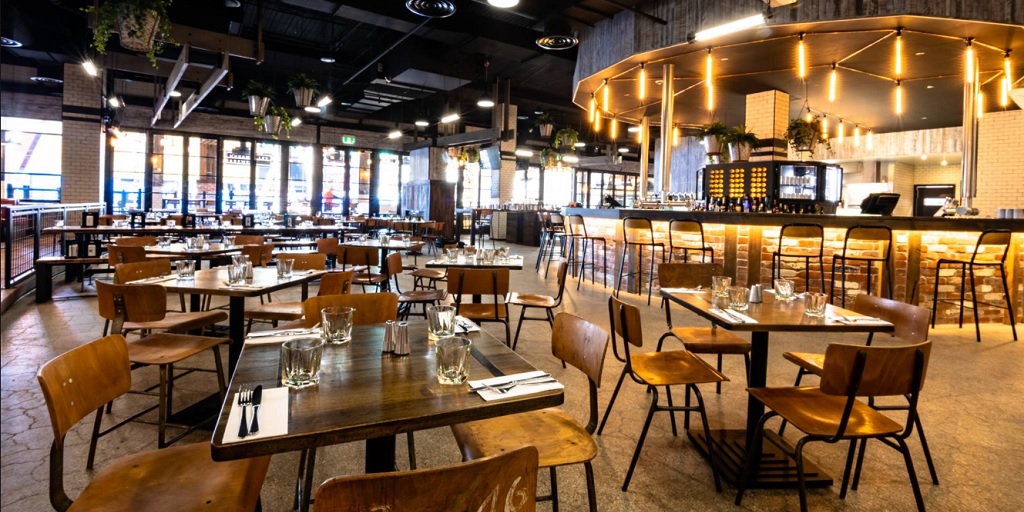
Urban Alley’s Docklands venue
“It helps you mould the brand. As much as you think you know your target market, until you’re talking to the consumers it’s not 100 per cent correct.”
The difficulty with getting your beer in bottle shops is a lack of control over what happens to it, they said.
“The last thing you’d want is to have it on the shelf for two or three months. You don’t know how it’s being stored, it could be out on a pallet in the heat or always on a shelf rather than in the fridge.
“We always pulse check that. Maybe the bottle shop is just not getting through the stock which says to me maybe we’ve gone in there too early. If it’s not working just yet let’s revisit later or do some marketing in that area.
“Try to grow from your base, and look at the local community first, then they will have heard of you and you can go from there,” Stevenson advised.
Management changes
It’s been a big year for change on the management and legal front too. The trademark dispute with La Sirène Brewing over the use of the word ‘urban’ in rival ales was heard earlier this year, although a full judgement has yet to be released.
Ze’ev Meltzer, founder and co-owner of Urban Alley, has also officially left the business, they confirmed.
Meltzer, who, prior to the launch of Urban Alley had owned 100 per cent of Collins Street Brewery, has decided to sell his stake to the remaining two shareholders in the brewery.
“It’s a good example of what kind of challenges can appear within the first year or two of a brewing operation, or any young company really,” explained Stevenson.
They said that Meltzer had left and was spending more time with his family.
“He created the brand, and a lot of people here are only here because of him,” Rubinstein said.
“It was a difficult challenge to navigate, and it can happen any time to anyone anywhere.
“People just need to be aware [these things can happen]. You’ve got to be prepared and keep going and understand it’s never one person that makes something what it is – there’s a team behind everything, and the rest of the team is still here,” said Rubinstein.
“Ze’ev is confident in all of us, and he’s got a really bright future ahead. He’s taking some time with his family, but it’s not the last we’ve heard of Ze’ev.”
Meltzer was contacted for comment but did not respond by the time of publication.
Sustainability
Urban Alley’s sustainability focus was launched to much fanfare, and it’s still a cornerstone of the brewery.
But as with most things in life, Urban Alley’s plans have evolved to meet the changing demands of the business.
“One of the most visible [sustainability initiative from Urban Alley] is the six-pack holders. We were the first to market in the country with those, we initially were getting them from the US.
“It was costly, and sometimes sustainability does cost more than the normal, but it was a decision we made because it’s something we really wanted to do,” explained Rubinstein.
However they realised cutting down on transportation due to carbon emissions as well as cost was the way forward, and changed their supplier to one closer to home.
“Getting the six-pack rings here from the US was conflicting for us, we were helping the environment but increasing carbon emissions to get the product here.”
Now the team work with Biopak and use locally-sourced six-pack rings made from sugarcane pulp (a by product of the sugar refining industry) rather than grain fibre, although the team are still hand-applying them to packs, and are looking for an automation process to make the process a bit more streamlined.
The team are also still planning on a partnership with the distillery across the laneway, which will be installed in early 2020, and will see the team supply whiskey wash and potentially a hot/cold water transfer pipe system to cut down on heating and cooling costs at both producers.
“Reduction of the impact on the environment is hard to quantify, but you can imagine if they don’t have to cool water down, and they don’t have to heat water up, you’re looking at a major reduction in its impact on the environment.
“We try to do things like that as much as we can, though we had no illusions about being able to do things straight away,” Rubinstein said.
“The main focus was on getting the brewery operational, and brewing beer we’re proud of and can stand behind.
“That’s been all of our focus for the last 12 months. In the future we know we can look into these things more.”
Find out more about Rubinstein and sustainability initiatives at Urban Alley in his discussion with Pete Mitcham on Beer is a Conversation.
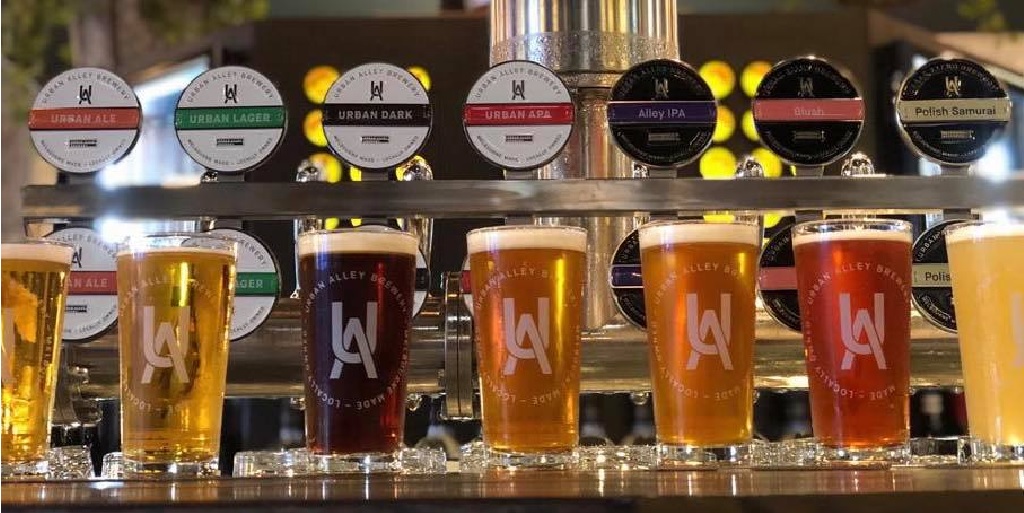
Learning curve
“As we’re about to have our first birthday party this Thursday, it’s a good time to reflect on how much work has gone into this point, and it hasn’t come easy!” Stevenson admitted.
‘That first month when we were getting everything ready, the brewers were literally sleeping overnight at the brewery.
“Apart from sleeping at home now, there’s been a lot of change and a lot of effort that goes into it.”
But, he said, there have been some high points over the year.
“What people don’t realise is that everyone in the indie craft beer community are really helpful.
“It’s worth being part of the IBA and the community and going to other people’s breweries and having a chat, it’s a great community to be a part of.”
Rubinstein, who went from being a 50-litre-a-month homebrewer to brewing 5,000 litres of commercial beer twice a week, said that the past year had been a learning curve, but it was well worth it in the end.
“It’s been a huge challenge, but the thing is, you believe in it. I look at this place, that I helped design and build, and I believe in it. I still get goosebumps when I walk out in the venue, or see someone drinking a beer from one of our taps.”
He said that even as a new entrant to the industry, he’d noticed the collegial spirit amongst brewers.
“I’m one of those people who has just come from a completely different industry, [Rubinstein was previously an industrial engineer] and the support I’ve received from the community and other head brewers has been incredible. They say give me a call if you need help, and they mean it. Suddenly you realise you’re not alone in it.
“Brewers that are involved in making industry what it is are so keen to help other newer players become better, and that drives overall quality up. Without that we wouldn’t be where we are today.
“We’re not winning tonnes of trophies but we’ve got good beer and beer out in the market that’s moving. We’ve received more awareness and attention and that’s what matters, and to be able to do that in 12 months is testament to not just us but people around us supporting us,” Rubinstein finished.

